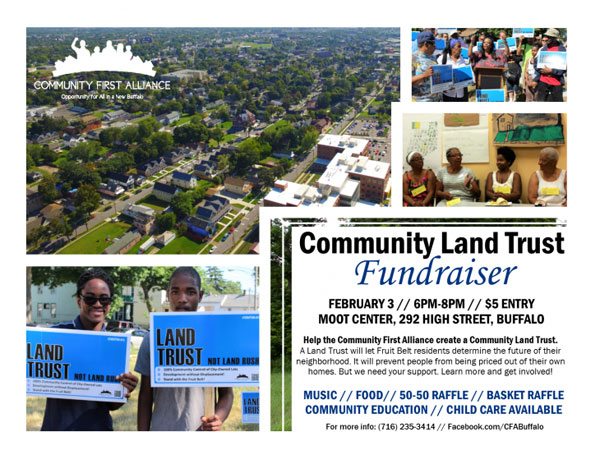 It’s great to see that there is support from local governments for the creation of CLTs. Land is being put aside in Buffalo for perpetually affordable housing.
It’s great to see that there is support from local governments for the creation of CLTs. Land is being put aside in Buffalo for perpetually affordable housing.
Category: Affordable housing
 THE 2017 FEDERAL BUDGET HANGOVER – AND HOW TO AVOID IT
THE 2017 FEDERAL BUDGET HANGOVER – AND HOW TO AVOID IT
Where We Are
The Australian property market is like a night club. Glitzy, glamorous, some wall-flowers hoping to get in on the action, and everyone drinking as much alcohol (properties) as possible to be with the ‘in crowd’. Night clubs are about ME. Me being popular, me having a “great” time, me hooking up with the promise of pleasure.
Australia is stuck in the wrong paradigm (the nightclub), and the government and those giving advice are trying to solve the nightclub issues from within the club. Some of the solutions (to hangovers) being offered in the 2017 Federal Budget include:
Happy hour, increased supply of alcohol, clearer pathways to the bar, shorter bar height to help those who are vertically challenged, onsite brewery and smaller (and lighter) beer steins for the frail.
However, at the end of the night (this property cycle) when the ugly lights come on, everyone will still get that awful hangover…so everyone says…hopefully tomorrow night when the government has come up with other ways to simplify access to the alcohol the hangover won’t eventuate. Hmmmm?!?
The issue isn’t the alcohol, it is the environment in which the alcohol is used and the abuse of the alcohol. The nightclub environment encourages sadistic narcissism.
A Better Place to Be
There needs to be a new environment where the alcohol is used responsibly. The place for alcohol to be served is at a BBQ with family and friends, where there is wholesome food, good communication, a safe environment and supportive relationships. An environment where positive outcomes are achieved. BBQs are about US, our relationships, our social support system, our life together, not about ME.
What is required to solve the issue of housing affordability is a paradigm shift and to realise that the solution to housing affordability exists outside the market. Housing as a human right can no longer be abused in the market (the Night Club). Instead housing needs to be taken out of the market – into community organisations that steward property (the BBQ). This way, properties serve US as homes, as opposed to individuals being slaves to houses hoping that by some stroke of luck, they will make ME wealthy without any consequences to the community. The best mechanism that I am aware of to achieve this, is through a community land trust (I might call it a Community Property Stewardship Group).
How to Get There
If you think a BBQ sounds better than a Nightclub, drop us a line and we can show you how to get one going.

Victoria looking to shared equity as a solution.
When people are unable to get off the rent treadmill, shared equity is a good way to achieve home ownership. However, if the shared equity scheme is not structured correctly, long term benefit is limited.
In a (straight) shared equity scheme future capital gain upon resale is distributed in the same proportion as the equity share between the parties. This means that the next purchaser will find it more difficult to purchase that same property. The reason for this is whilst ever property prices appreciate more quickly than area median income, gentrification will occur. This results in the future displacement of moderate to low income groups from that community. [Where high capital growth occurs, even middle to high-income earners can be displaced].
With some State Governments undertaking shared equity schemes (Click on link), unless it is structured correctly, it is just another Government subsidised Band-Aid solution (like NRAS, FHOG, Stamp Duty exemptions etc.) which doesn’t ultimately see people getting relief from housing stress.
What is likely to happen because of a Government funded straight shared equity scheme, is a housing price increase fuelled by the Government’s equity.
This has significant negative impacts on individuals and the communities from which they are coming from and to which they are forced to move to.
A shared equity solution with better outcomes
The crucial thing that Government should focus on is to create sustainable communities. This means supporting community (housing) organisations to expand affordable housing through methods such as (resale restricted) shared equity schemes. With Government supporting localised community (housing) organisations, communities will build their capacity to steward real property assets.
A resale restricted shared equity scheme sees most of the future capital gain retained by the community (housing) organisation. The gain is either kept in the home or used to provide additional perpetually affordable housing. As a result, future purchasers (in the same income bracket) can afford repayments on the shared equity loan. The beauty of the resale restriction is that it counteracts the effect of house prices rising more quickly than incomes. One outcome is that (assuming adequate supply of resale restricted shared equity homes in a community), children and future generations may not be forced to move out of the area.
Resale restricted shared equity means that properties serve our communities rather than people being slaves to property.
How Will Victoria Provide Affordable Housing?
The Victorian Government recognises that they have an affordable housing crisis. The solutions that are offered (in their media release from 1/2/17 titled “VICTORIA STEPS UP ON HOUSING AFFORDABILITY”), in summary are:
- reducing red tape for development approvals
- changing land zoning to increase potential supply of housing
- expanding public housing supply to stabilise the rental market
- hoping that the federal government will provide community housing providers
The State Government is really only offering the solution of increasing housing supply. (zoning changes and reducing red tape are about increasing supply rapidly).
A rapid increase in housing supply can create other (sometimes unforeseen) issues, that may include:
- excessive loads on community infrastructure (public transport, roads, sewer, water, electricity etc.)
- approval of inappropriately small allotments or bland high density construction (creating potential future ghettos)
- sub-standard housing quality (because, any contractor with a heart beat will be employed to get projects finished)
- Creating a construction employment boom, followed by a time of under-employment for those same workers.
- Creating a potential over supply of housing ( I saw this happen in Mackay, and when the job market changed, the oversupply was devastating to the housing market which caused a lot of foreclosures)
Taking the above into consideration, it is important that the Victorian Government’s focus should be on increasing the quantity of perpetually affordable housing. This would then help to avoid similar knee-jerk reactions in the future. Consistent and planed organic growth in line with demand is key to avoiding boom and bust cycles in employment and property.
A CLT(Community Land Trust) is a very good way to provide perpetually affordable housing. We can help to implement a CLT in your local community.
Community Housing Providers Are Part Of The Solution
 Management of Social Housing on a state-wide level isn’t working. That is why the NSW State Government is continuing to hand over the management of Social Housing to local Community Housing Providers (CHPs). See the article here.
Management of Social Housing on a state-wide level isn’t working. That is why the NSW State Government is continuing to hand over the management of Social Housing to local Community Housing Providers (CHPs). See the article here.
CHPs will receive the management of these 18,000 dwellings early next year. Associated community services will also be awarded to approved community organisations. This is a positive step to having better resident-community outcomes.
However, if past practices are still used great improvement will not occur. The financial burden on the Australian tax system will continue, if Social Housing residents remain renting for the rest of their lives. So, the answer doesn’t lie in an increase in Social Housing stock. Increasing the supply of government funded housing is the incorrect vehicle.
It is important that CHPs are able to use management fees from social housing in numerous ways. In the past fees have only been able to be fed back into social housing. Better outcomes would occur if fees were spent on social housing stock, perpetually affordable housing and education.
If residents were able to use government rent subsidies to pay a Community Land Trust mortgage down, then over time the financial burden on the tax system will reduce.
It’s all about continual improvement and working towards positive social outcomes.

The Gabba’s Greens councillor Jonathan Sri (pictured with Senator Larissa Waters) has defended living in an illegal share house. Photo: Bradley Kanaris
I had a friend send me a news article that highlighted how due to unaffordability, our society is forcing people to live in illegal and undesirable situations.
This article describes why a Brisbane City Councillor has been forced to live in an Illegal Share House
Living in a caring community, and sharing and bearing a load with others is a good thing, however when it means that there is overcrowding, or insurances won’t cover incidents (because of the illegal use of the property), something has to change.
Community Land Trusts (CLTs) are a significantly better option than living illegally, and even renting. Some of the benefits include:
- The resident is an owner of the property in a shared equity arrangement with the CLT.
- The resident is able to hang pictures on walls, have pets (so long as there are no bodies corporate rules to the contrary), have the security of knowing that they aren’t going to be moved from their home at a landlord’s whim.
- Due to the affordability of getting into a CLT home, residents won’t be forced to live in an overcrowded share-house situation.
- Rent doesn’t continually go up with the market, instead the resident will be paying down their mortgage and building equity.
If you have any questions, please feel welcome to send us a message.

